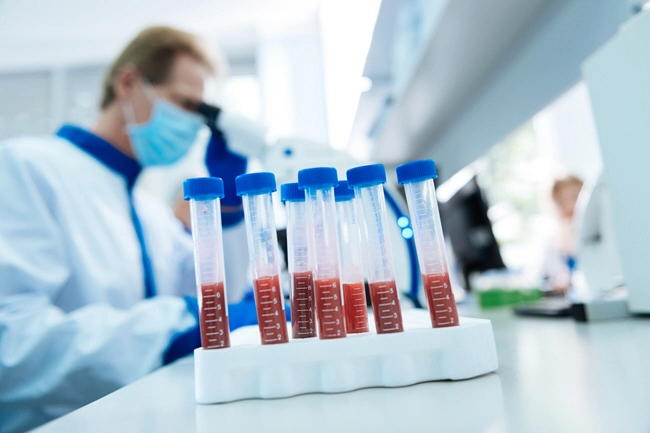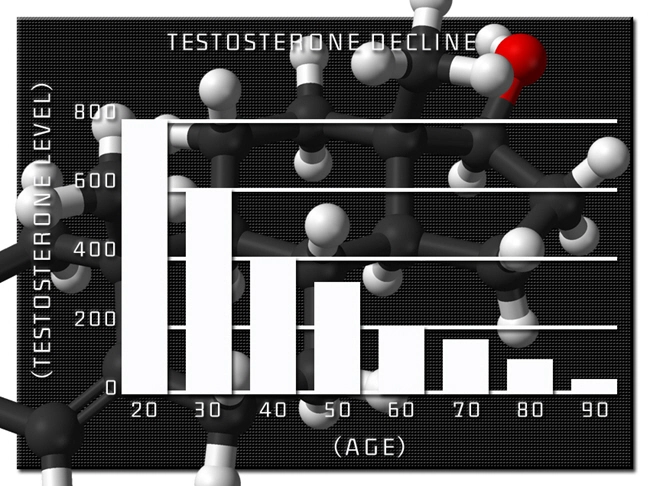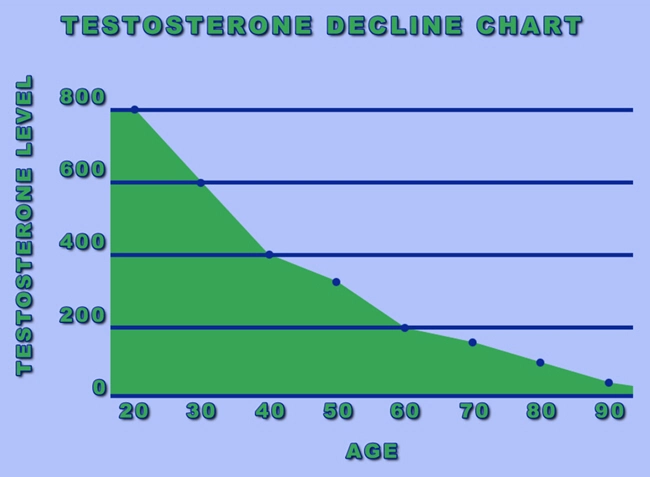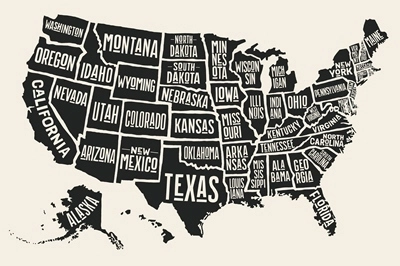
Video Link: https://vimeo.com/287919125
Video Download: Click Here To Download Video
Video Stream: Click Here To Stream Video
Upon discovering that they are about to become fathers, men often experience a drop in two hormones: testosterone and estradiol. This happens even before their babies are born, according to a new University of Michigan study.
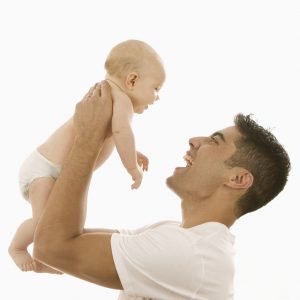
Past research has demonstrated that men's hormones change after they become fathers, and there is some evidence that this is a function of a decline after the child's birth.
What is unique about the new U-M study is this: it is the first research to show that the decline may begin even earlier, during the transition to fatherhood, said Robin Edelstein, the study's lead author. "We don't yet know exactly why men's hormones are changing," said Edelstein, U-M associate professor of psychology.
"These changes could be a function of psychological changes that men experience as they prepare to become fathers, changes in their romantic relationships, or even physical changes that men experience a long with their pregnant partners.
"Nevertheless, fathers' hormonal changes could have significant implications for paternal behavior once their babies are born." It has long been known (and painfully aware of by many husbands) that expectant mothers experience mercurial hormone changes and unusual food cravings while pregnant.
However, less has been known about the prenatal hormone changes among expectant fathers. Edelstein and colleagues examined testosterone, cortisol, estradiol, and progesterone levels in 29 first-time expectant couples between the ages of 18 and 45.
Samples were obtained up to four times during the prenatal period at about 12, 20, 28, and 36 weeks of pregnancy.
Women showed substantial fetal increases in all four hormones, while men saw drops in testosterone (which is associated with aggression and parental care)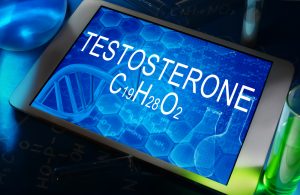 and estradiol (which is related to caregiving and bonding).
and estradiol (which is related to caregiving and bonding).
No changes were found in men's cortisol (a stress hormone) or progesterone (which is associated with social closeness and maternal behavior).
The conclusion? It's not only the physical presence of an infant that lowers testosterone Edelstein also said. One limitation of the new study (especially concerning lower testosterone levels) is that researchers do not have a comparison group of men who are not expecting a child.
"Thus, we can't completely rule out the possibility that the changes are simply due to age or the passage of time," Edelstein said.
The takeaway of this article is this: low levels of testosterone can strike at any time. If you feel exhausted, depressed, or any other change since becoming a new father, contact us for a FREE, no-obligation discussion of what testosterone replacement therapy (TRT) can do for you.
Reference
Expectant fathers experience prenatal hormone changes
Contact Us Today For A Free Consultation
Dear Patient,
Once you have completing the above contact form, for security purposes and confirmation, please confirm your information by calling us.
Please call now: 1-800-380-5339.
Welcoming You To Our Clinic, Professor Tom Henderson.

- Are You Constantly Feeling Tired And Fatigued ? [Last Updated On: April 27th, 2025] [Originally Added On: May 1st, 2018]
- Constantly Tired? Can't Sleep? [Last Updated On: March 14th, 2025] [Originally Added On: March 23rd, 2019]
- How to Understand and Deal with Cirrhosis [Last Updated On: March 13th, 2025] [Originally Added On: April 12th, 2019]
- Insomnia: The Silent Killer [Last Updated On: March 12th, 2025] [Originally Added On: April 30th, 2019]
- Lipocine Reintroduces Tlando [Last Updated On: August 19th, 2025] [Originally Added On: March 18th, 2020]
- High-Intensity Interval Training Boosts Both Body and Mind [Last Updated On: February 20th, 2025] [Originally Added On: May 10th, 2020]
- Tattoo Safety: What to Know Before You Get a Tattoo [Last Updated On: February 28th, 2025] [Originally Added On: June 2nd, 2020]
- L-Arginine: The Key to Both Heart Health and Sexual Health [Last Updated On: March 10th, 2025] [Originally Added On: December 4th, 2020]
- The Importance of Hormonal Balance for Menopause [Last Updated On: February 20th, 2025] [Originally Added On: December 14th, 2020]
- Menopause Drugs: Study Stokes New Debate Over Cancer Risks [Last Updated On: March 8th, 2025] [Originally Added On: December 16th, 2020]
- Study Examines Link Between Growth Hormones and Osteoporosis [Last Updated On: March 11th, 2025] [Originally Added On: December 17th, 2020]
- Everything You Need to Know About Clomiphene [Last Updated On: March 9th, 2025] [Originally Added On: December 20th, 2020]
- Fast Facts About DHEA: What You Need to Know About This Natural Steroid [Last Updated On: August 16th, 2025] [Originally Added On: March 4th, 2021]
- Enjoy a Few Drinks Weekly? Beware: This May Be a Link to Low Sperm Counts and Quality [Last Updated On: March 6th, 2025] [Originally Added On: August 16th, 2021]
- Hormone Therapy May Benefit Some Women's Hearts [Last Updated On: February 20th, 2025] [Originally Added On: August 18th, 2021]
- HGH Male Blood Panel [Last Updated On: October 28th, 2021] [Originally Added On: September 28th, 2021]
- Growth Hormone Battles Osteoporosis [Last Updated On: February 26th, 2025] [Originally Added On: October 11th, 2021]
- Growth hormone = More Sleep = Better Sex! [Last Updated On: March 7th, 2025] [Originally Added On: October 11th, 2021]
- Low Testosterone and Hypogonadism: The Difference [Last Updated On: May 19th, 2025] [Originally Added On: October 12th, 2021]
- The Link Between Testosterone and Tylenol [Last Updated On: February 21st, 2025] [Originally Added On: October 12th, 2021]
- Hormone Replacement Therapy and Aerobics May Ease Menopause Symptoms [Last Updated On: February 19th, 2025] [Originally Added On: October 13th, 2021]
- Growth Hormone and Lifestyle = An Extended Lifespan [Last Updated On: February 23rd, 2025] [Originally Added On: October 13th, 2021]
- Growth Hormone, Foods, and Supplements for Healthy Skin [Last Updated On: May 10th, 2025] [Originally Added On: October 13th, 2021]
- Hormone Replacement Therapy, Menopause, and Cancer [Last Updated On: February 24th, 2025] [Originally Added On: October 13th, 2021]
- Growth Hormone, Exercise, and Osteoporosis: The Facts! [Last Updated On: February 22nd, 2025] [Originally Added On: October 13th, 2021]
- Hormone Replacement Therapy and Menopause [Last Updated On: February 25th, 2025] [Originally Added On: October 13th, 2021]
- Testosterone and Women [Last Updated On: February 18th, 2025] [Originally Added On: October 13th, 2021]
- Growth Hormone and Smoking [Last Updated On: February 19th, 2025] [Originally Added On: October 14th, 2021]
- Testosterone, Statins, and Prostate Cancer [Last Updated On: February 18th, 2025] [Originally Added On: October 19th, 2021]
- Researchers Investigate Declining Sperm Counts, Find Chemicals Rampant [Last Updated On: May 23rd, 2025] [Originally Added On: June 14th, 2022]
- Understanding the Role of Hormonal Balance in Menopause [Last Updated On: February 7th, 2025] [Originally Added On: February 7th, 2025]
- Introduction: Benefits of Hormone Replacement Therapy [Last Updated On: February 8th, 2025] [Originally Added On: February 8th, 2025]
- The Influences and Benefits of High-Intensity Interval Training [Last Updated On: February 8th, 2025] [Originally Added On: February 8th, 2025]
- The Link Between Human Growth Hormone, Exercise, and Osteoporosis [Last Updated On: February 9th, 2025] [Originally Added On: February 9th, 2025]
- The Therapeutic Benefits of Human Growth Hormone [Last Updated On: February 16th, 2025] [Originally Added On: February 16th, 2025]
- Introduction: The Reality of Menopause [Last Updated On: February 18th, 2025] [Originally Added On: February 18th, 2025]
- An Introduction to the Benefits of Human Growth Hormone Replacement Therapy [Last Updated On: February 19th, 2025] [Originally Added On: February 19th, 2025]
- Introduction to Hormone Replacement Therapy [Last Updated On: February 20th, 2025] [Originally Added On: February 20th, 2025]
- Introduction: Evaluating the Safety of Hormone Replacement Therapy [Last Updated On: February 23rd, 2025] [Originally Added On: February 23rd, 2025]
- The Rise of Tattoos in America [Last Updated On: February 23rd, 2025] [Originally Added On: February 23rd, 2025]
- The Influence of Growth Hormone and Sleep on Libido [Last Updated On: February 27th, 2025] [Originally Added On: February 27th, 2025]
- Introduction: The Association Between Alcohol Consumption and Sperm Quality [Last Updated On: February 27th, 2025] [Originally Added On: February 27th, 2025]
